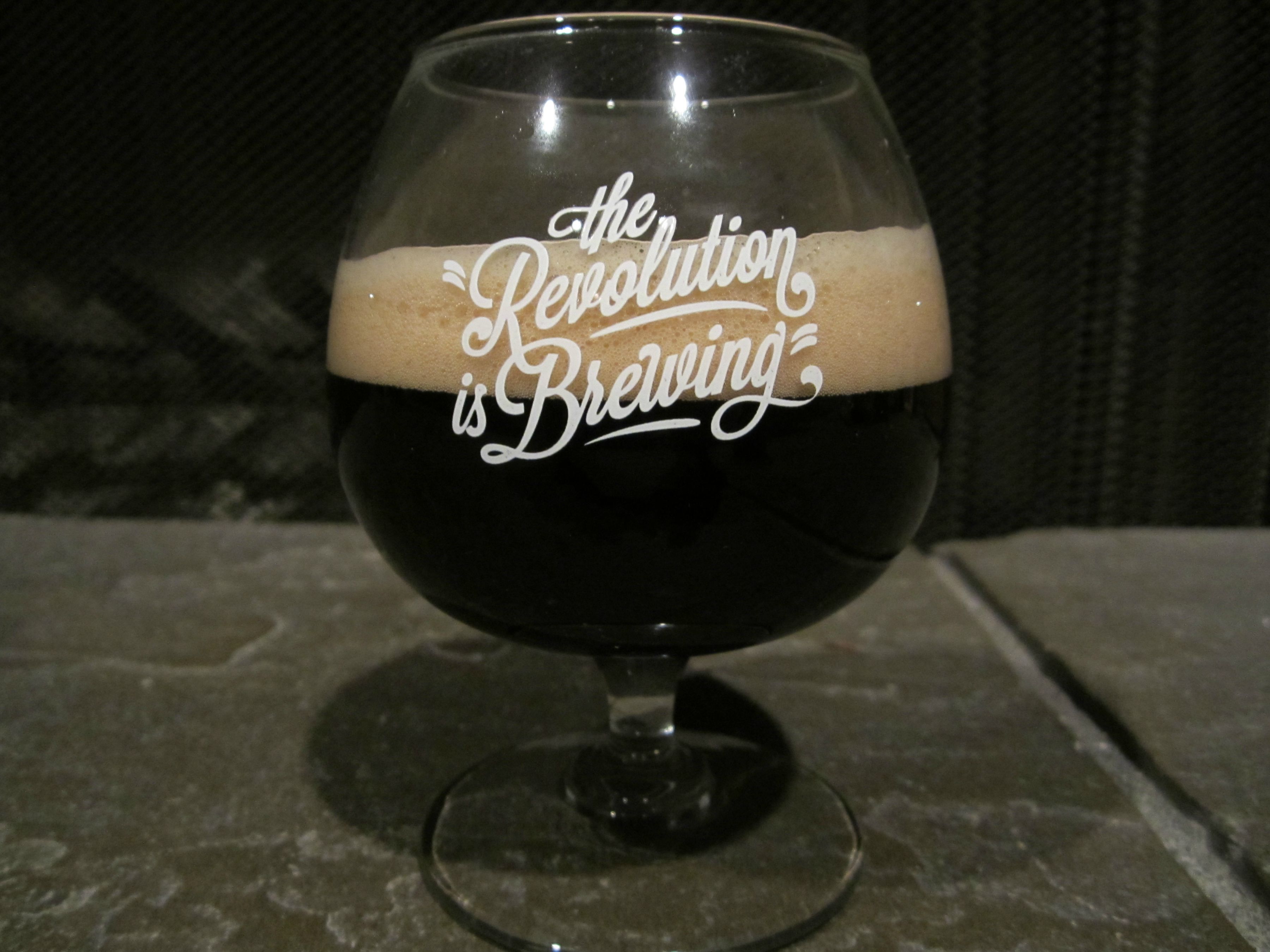LeathernoseBrewing
Member
- Joined
- Jan 20, 2014
- Messages
- 10
- Reaction score
- 2
- Recipe Type
- All Grain
- Yeast
- WLP004 Irish Ale
- Yeast Starter
- Nope
- Batch Size (Gallons)
- 5.5
- Original Gravity
- 1.056
- Final Gravity
- 1.010
- Boiling Time (Minutes)
- 60
- IBU
- 30
- Color
- 32 (SRM)
- Primary Fermentation (# of Days & Temp)
- 7 days @ 68º
- Secondary Fermentation (# of Days & Temp)
- 7 days @ 68º
- Tasting Notes
- Like cold-brewed coffee
Just a simple dry Irish stout recipe with heaps of coffee added. The absence of caramel malts really helps the coffee shine and the flaked barley lends just enough creaminess to give it a bit of body.
This beer is really all about the coffee so don't skimp. No Folger's, and nothing too dark or it tends to take on an ashy flavor. Whenever I brew I always try to look for a nice medium roast with toffee and caramel notes. This guy pours with a fluffy, off-white head that won't quit. The aroma is all coffee, as is the flavor with a subtle hop bitterness and slight fruitiness from the yeast. Drinks a lot like a cold-brewed coffee until you start to catch a buzz.
Grains:
9.00lb 2-Row Pale
1.00lb Munich Malt
0.75lb Chocolate Malt
0.50lb Roasted Barley
0.50lb Flaked Barley
Hops (Amount, Type, AA%, Boil Time):
1oz Willamette 3.9% (60min.)
1oz Fuggles 5.1% (40min.)
Irish Moss (15min.)
Yeast:
WLP004 Irish Ale
Other things:
1/3lb Coarse ground coffee (added at bottling/kegging)
Mash grains low and slow, 151ºF for 75 minutes. After your 60 minute boil, cool to 68º and pitch yeast. Ferment for 7 days then rack to secondary and let sit for at least 7 days, or until fermentation has been completed, but no less.
Sanitize a container that can hold about a liter of liquid, fill with 20oz of water, add coffee and cover with sanitized plastic wrap. Ideally you want to grind the coffee fresh then let it steep in 20oz of cold spring water for 24 hours before adding directly to your bottling bucket or keg. In the past I have racked the beer onto the coffee when transferring to secondary and let sit for a week until the coffee grinds flocc out. This method produces similar results, however it creates one ungodly mess, and I can't guarantee you won't have some coffee grinds floating around in your finished beer. What I'm trying to say is, don't be lazy, sanitize the extra container and you will be rewarded with less clean-up and beer free of coffee shards (which is all we home brewers ever want).
Anyway, in case my words didn't come across as eloquently as I hoped, here is a picture. If you do decide to brew, please touch base and let me know how it turned out. Cheers!

This beer is really all about the coffee so don't skimp. No Folger's, and nothing too dark or it tends to take on an ashy flavor. Whenever I brew I always try to look for a nice medium roast with toffee and caramel notes. This guy pours with a fluffy, off-white head that won't quit. The aroma is all coffee, as is the flavor with a subtle hop bitterness and slight fruitiness from the yeast. Drinks a lot like a cold-brewed coffee until you start to catch a buzz.
Grains:
9.00lb 2-Row Pale
1.00lb Munich Malt
0.75lb Chocolate Malt
0.50lb Roasted Barley
0.50lb Flaked Barley
Hops (Amount, Type, AA%, Boil Time):
1oz Willamette 3.9% (60min.)
1oz Fuggles 5.1% (40min.)
Irish Moss (15min.)
Yeast:
WLP004 Irish Ale
Other things:
1/3lb Coarse ground coffee (added at bottling/kegging)
Mash grains low and slow, 151ºF for 75 minutes. After your 60 minute boil, cool to 68º and pitch yeast. Ferment for 7 days then rack to secondary and let sit for at least 7 days, or until fermentation has been completed, but no less.
Sanitize a container that can hold about a liter of liquid, fill with 20oz of water, add coffee and cover with sanitized plastic wrap. Ideally you want to grind the coffee fresh then let it steep in 20oz of cold spring water for 24 hours before adding directly to your bottling bucket or keg. In the past I have racked the beer onto the coffee when transferring to secondary and let sit for a week until the coffee grinds flocc out. This method produces similar results, however it creates one ungodly mess, and I can't guarantee you won't have some coffee grinds floating around in your finished beer. What I'm trying to say is, don't be lazy, sanitize the extra container and you will be rewarded with less clean-up and beer free of coffee shards (which is all we home brewers ever want).
Anyway, in case my words didn't come across as eloquently as I hoped, here is a picture. If you do decide to brew, please touch base and let me know how it turned out. Cheers!

Last edited:



